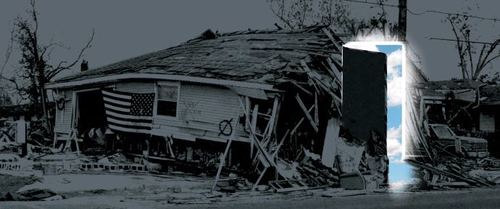


By Steve Sailer
08/24/2015
A decade ago, former first lady Barbara Bush was much criticized for implying that impoverished New Orleans black refugees driven from their libertine hometown by Hurricane Katrina would be better off staying in more culturally and politically conservative Houston. From the NYT ten years ago:
Barbara Bush Calls Evacuees Better Off
SEPT. 7, 2005
WASHINGTON, Sept. 6 — As President Bush battled criticism over the response to Hurricane Katrina, his mother declared it a success for evacuees who “were underprivileged anyway,” saying on Monday that many of the poor people she had seen while touring a Houston relocation site were faring better than before the storm hit.
“What I’m hearing, which is sort of scary, is they all want to stay in Texas,” Barbara Bush said in an interview on Monday with the radio program “Marketplace.” “Everyone is so overwhelmed by the hospitality.”
“And so many of the people in the arena here, you know, were underprivileged anyway,” she said, “so this is working very well for them.”
Now Malcolm Gladwell has an article in The New Yorker on ex-New Orleans residents that, while not mentioning Mrs. Bush, comes to much the same conclusion:
Many Katrina victims left New Orleans for good. What can we learn from them?
BY MALCOLM GLADWELL
… Kirk is a sociologist at the University of Oxford. … What effect does where you live have on how you turn out? It’s a difficult question to answer because the characteristics of place and the characteristics of the people who happen to live in that place are hard to untangle. As Kirk drove around the Lower Ninth, however, he realized that post-Katrina New Orleans provided one of those rare occasions when fate had neatly separated the two variables. In the course of bringing immeasurable suffering to the people of New Orleans, Katrina created what social scientists call a “natural experiment”: one day, people were in the neighborhoods where they had lived, sometimes for generations. The next day, they were gone — sometimes hundreds of miles away. “They had to move,” Kirk said. What, he wondered, were the implications of that?
… Kirk’s idea was to look at convicted criminals from New Orleans who had been released from prison after Katrina. As a group, they were fairly homogeneous: largely black, largely poor. For years, their pattern was to return to their old neighborhoods after they were released: to their families, homes, social networks. But for some, by the most random of circumstances, that was now impossible. Their neighborhoods — the Lower Ninth, New Orleans East — had been washed away. How did the movers compare with the stayers?
“This was December, 2006,” Kirk recounted. “I asked for a few things. I wanted information on where prisoners were living prior to Katrina. And I also wanted information on where they were living after release. I basically got an address file from the Department of Corrections for everyone who came out of prison from 2001 to 2007. It was extremely messy. They don’t necessarily collect data in a way that makes it easy to geo-code. There would be notes like ‘This is grandma’s telephone line.’ I went line by line to clean it up.” He wound up with a list of three thousand individuals. His interest was recidivism: Were those people who came out of prison and found their entire world destroyed more likely or less likely to end up back in prison than those who could go home again? Kirk looked first at the results one year and three years after release and has since been working on an eight-year study. The results aren’t even close. Those who went home had a recidivism rate of sixty per cent. Those who couldn’t go home had a rate of forty-five per cent.